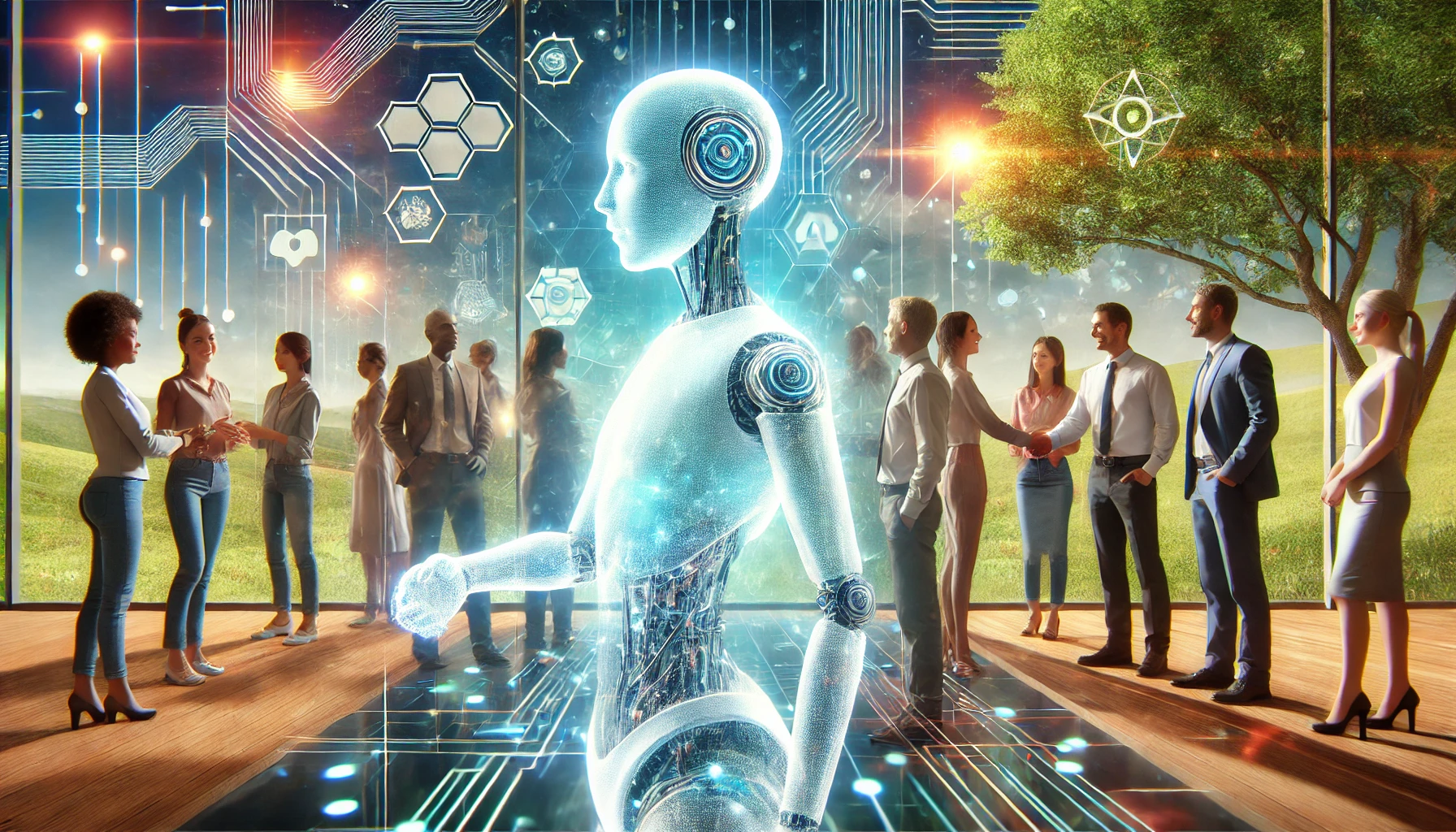Navigating the Balance Between Innovation and Responsibility
In the rapidly evolving world of Artificial Intelligence (AI), ensuring that these technologies are developed and used ethically is crucial. But what exactly is Ethical AI, and why does it matter?
Here’s a breakdown of what you need to know about ethical AI and its importance for the future.
1. What is Ethical AI?
Ethical AI refers to the development and deployment of artificial intelligence that upholds the principles of fairness, transparency, accountability, and privacy. It aims to ensure AI technologies contribute positively to society while mitigating risks like bias, discrimination, and invasion of privacy.
2. Why Does Ethical AI Matter?
AI has the potential to revolutionize industries, but with great power comes great responsibility. Ethical AI helps prevent harm by ensuring that AI systems do not inadvertently reinforce biases, invade privacy, or make unjust decisions.
By establishing ethical guidelines, we ensure that AI supports human well-being and societal values.
3. The Four Pillars of Ethical AI
1. Fairness: Avoiding Bias
- AI systems can unintentionally perpetuate biases if trained on biased data. For example, a facial recognition system may be less accurate for people of different skin tones.
- Ethical AI ensures that AI systems are developed with diverse, representative data to minimize bias and guarantee fairness.
2. Transparency: Building Trust
- Transparency is about ensuring clarity regarding how AI systems make decisions.
- Ethical AI demands that companies provide clear explanations of how AI works, what data is used, and how outcomes are achieved to build trust with users.
3. Accountability: Who’s Responsible?
- As AI systems become more autonomous, it’s essential to determine who is responsible if things go wrong.
- Ethical AI frameworks prioritize accountability, ensuring that there are mechanisms in place to address the consequences of AI-driven decisions.
4. Privacy: Protecting Data
- AI systems need access to large amounts of data, which raises privacy concerns.
- Ethical AI ensures that sensitive data is handled responsibly, in compliance with regulations like GDPR, and emphasizes the importance of informed consent.
4. Ethical AI in Real-World Applications
AI is already transforming various sectors, but ensuring ethical implementation is key. Here are a few examples:
- Healthcare: AI systems are used to predict patient outcomes and assist in diagnosis. These systems must be fair and unbiased, ensuring that they do not discriminate based on factors like race or gender.
- Autonomous Vehicles: Self-driving cars like those from Tesla and Waymo are making ethical decisions in split-second situations, aiming to minimize harm during accidents.
- Hiring Practices: Many companies are using AI to screen resumes and predict the best candidates. Ethical AI helps ensure that these systems don’t perpetuate existing biases in hiring.
5. Challenges of Achieving Ethical AI
While the idea of ethical AI is important, achieving it is not simple. It requires:
- Collaboration: Ethical AI needs input from technologists, ethicists, lawmakers, and society at large.
- Ongoing Monitoring: Continuous evaluation is necessary to ensure AI systems remain fair and aligned with societal values.
6. The Road Ahead: Can We Achieve Ethical AI?
Achieving ethical AI is an ongoing challenge. It requires constant vigilance and collaboration. By embedding ethical considerations at every stage of development—from design to deployment—we can ensure that AI serves humanity in ways that are fair, just, and transparent.
For a more detailed look at the ethical implications of AI, check out Stanford’s AI Ethics Research.
——————————————————————————————
FAQ’s About Ethical AI
1. What does Ethical AI mean?
Ethical AI refers to the development of AI systems that prioritize fairness, transparency, accountability, and privacy.
2. Why is Ethical AI important?
It ensures that AI technologies are developed in ways that prevent harm, reduce bias, and respect human rights.
3. What are the main pillars of Ethical AI?
The main pillars are fairness, transparency, accountability, and privacy.
4. How does Ethical AI impact real-world industries?
It ensures AI systems in sectors like healthcare, autonomous driving, and hiring make fair and responsible decisions.
5. Can Ethical AI be fully achieved?
Achieving Ethical AI is an ongoing challenge that requires continuous collaboration, oversight, and evaluation.
——————————————————————————————
About the Author

Nancy Powell is an AI expert with 12+Years of experience in various AI projects.




